Strictly Personal
On campaign gaffes, missiles and banters by Simon Kolawole
Published
2 years agoon

The best way to enjoy electioneering seasons is to be emotionally detached. The moment you are a player — or you are emotionally invested — you cannot have fun to the fullest. There will be too much tension and excitement racing through your blood. Too much prejudice will block your sight. You will cry when you should be laughing and laugh when you should be crying. Although I can bet that everybody (including myself) has a soft spot for one presidential candidate or the other, everybody’s emotions are not on the same wavelength. There are levels to these things. Less than 10 weeks to the presidential election, I can bet that most people already know where they belong.
The campaign season has given us plenty entertainment and worries. Asiwaju Bola Ahmed Tinubu, the APC presidential candidate, has been under the spotlight for his gaffes. And there are plenty of them, the chief being his closing prayer at the flag-off of his campaign in Jos, Plateau state, on November 15. He was saying “God bless PD…” before changing his supplication to “God bless APC”. This was particularly strange. He has been an opponent of PDP since 1999, so I would not expect him to invoke God’s blessings on them, not when he is the APC candidate. Except, of course, he meant to say “PDM” which his political associates in 1991/92 formed ahead of joining the PDP in 1998.
One of those associates was Alhaji Atiku Abubakar, the vice-president from 1999 to 2007 and the presidential flagbearer of the PDP in the 2023 elections. Atiku was the brain behind PDM (Peoples Democratic Movement) made up of several political associates of the late Maj-Gen Shehu Musa Yar’Adua, the former chief of staff, supreme headquarters who was second-in-command to Gen Olusegun Obasanjo as military head of state (1976-1979). PDM was the strongest faction of the PDP from 1999 to 2003 before Obasanjo, now civilian president, dealt a fatal blow on it while disrupting Atiku’s plan to unseat him. Obasanjo went on to make sure Atiku did not succeed him in 2007.
Why would Tinubu want God to bless PDP or PDM, no matter how close he was, or is, to Atiku? They are now political rivals, for crying out loud! Well, one good turn deserves another. Atiku repaid Tinubu’s friendship with his own prayer on December 13 — also in Jos! There must be something about Jos. In his remarks at the rally, Atiku was shouting “God bless A…” before saying “I mean PDP!” Nigerians are making much of the fact that both gaffes happened on a Tuesday, but I am not aware that Tuesdays carry any significance in superstition. I know of Mondays, which foretell how the week would go. Caution: I am not an expert on superstitions, so don’t trust my analysis.
One gaffe that did not trend was committed by Mr Peter Obi, the presidential candidate of the Labour Party, in nearby Lafia, Nasarawa state, on October 13. This preceded the “God bless” syndrome. Speaking at his rally, Obi said: “Nasarawa is big… it is a great country.” His supporters said he meant Nasarawa can be a great country if it were on its own, since Israel is not as big. Nice one! After all, Nasarawa, like Israel, is rich in agriculture. And Israel is a great country. Don’t you just love the Obi-dients! But, seriously, given that Nasarawa was created out of Plateau in 1996, are there demons of gaffe in that axis that we need to cast out? Hint: some pastors can make money from it.
Another interesting thing this season is the townhall meetings and TV debates. The trailblazing THISDAY/Arise group is organising a series. I hereby confess that I love debates. I enjoyed the 1993 face-off between Chief MKO Abiola and Alhaji Bashir Tofa. However, Tinubu has ignored invitations by THISDAY/Arise — and the group has in turn accused him of trying to undermine free speech. A full-blown war has now ensued between both camps. Tinubu’s media managers have maintained that their principal has his own media engagement plan and excluding THISDAY/Arise is not the same as excluding the entire Nigerian media. That is the matter we have been trying to settle since.
But why do favourite presidential candidates shun debates? Ahead of the 1999 presidential election, a TV debate was organised between Obasanjo, the PDP flagbearer, and Chief Olu Falae, the joint candidate of the Alliance for Democracy (AD)/All Peoples Party (APP) which you can easily call the APC of today. Obasanjo, who was generally believed to be the candidate of the establishment, did not turn up for the scheduled two-hour debate. A disappointed Falae said: “It is an understatement to say I am embarrassed to sit alone and be debating with myself.” It had to be reduced to one hour, more like a TV interview. Obasanjo’s handlers said he was not aware of the well-publicised event.
The conclusion in the AD/APP camp then was that Falae, an economist trained at the University of Ibadan and Yale University, was going to tear Obasanjo to pieces. There were a few people who believed that the Abiola/Tofa debate played a major role in the way Nigerians voted on June 12, 1993 and Obasanjo did not want to be outshined. I don’t know how true. All these were conjectures. Whatever the case was, Obasanjo did not attend the 2003 debate either. That one could be explained this way: he was the sitting president and his record was going to be savaged by his opponents, including Maj-Gen Muhammadu Buhari, Dim Emeka Ojukwu and Pastor Chris Okotie.
While what Obasanjo did in 2003 was basically an interview with a panel of journalists, Alhaji Umaru Musa Yar’Adua, the PDP candidate, did not even make media appearances in 2007. I remembered he only visited Mr Nduka Obaigbena, THISDAY chairman, at his Ikoyi home and granted something like an interview. He fell ill during the campaign and some rallies went on without him. When rumours started circulating on the internet and via SMS (there was no WhatsApp then) that Yar’Adua was dead, Obasanjo had to call him on live TV to ask, rather hilariously, “Umoru, are you dead?” Yar’Adua went on to win the election which, even in his own opinion, was a shambles.
The conclusion of many analysts was that Yar’Adua would still have won without the performance-enhancing drugs administered by the Independent National Electoral Commission (INEC) under the leadership of the inimitable Prof Maurice Iwu. Sadly, Yar’Adua was not alive to run for a second term. Dr Goodluck Jonathan, his deputy, took over. He too did not participate in the 2011 TV debate. At least he had a PhD, so the Falae scenario could not have been his worry. And he had only been in office for one year, so there was not much to criticise him for. The NTA finally organised what was really an interview for him. He still won the election, like Obasanjo and Yar’Adua did before him.
Ironically, Jonathan badly wanted a debate with Buhari in 2015. Even though his own five-year record as president risked coming under attack, including issues of corruption and Boko Haram insurgency, Jonathan was obviously finally confident that Buhari would not outperform him in a debate, so he wanted it. Buhari, who debated Prof Pat Utomi in 2007, declined. Jonathan, instead, had to debate with Mr Godson Okoye of the United Democratic Party (UDP), Mrs Remi Soniaya of the Kowa Party, Chief Chekwas Okorie of the United Progressive Party (UPP), and Mr Martin Onovo of the National Conscience Party (NCP). Need I remind us that Buhari went on to win the election?
In 2019, Buhari copied Jonathan by refusing to turn up for the debate. His record was going to be under attack, obviously, with Atiku tipped to do better in a televised debate. That Buhari went on to win the election without debating might have strengthened the unwanted tradition in our presidential electioneering where sitting presidents or bookmakers’ favourites do not turn up. Tinubu’s media managers have made it clear that he would not attend the THISDAY/Arise series because there is a plot to embarrass him. I do not see Tinubu participating in any debate either — if history is anything to go by. Should we, therefore, conclude that presidential debates are jinxed?
My sense is that those rated as favourites do not want to debate because, while there is a consensus that debates don’t determine how most Nigerians vote, a slip of tongue may have a negative effect on them. It is more about not wanting to surrender the advantage so as not to lose the momentum. This has been recurring. Also, all the other candidates will be focusing on attacking the so-called front-runners. In the process, their opponents may say something really damaging that will cost them some votes. Some
would prefer to be attacked in absentia than being embarrassed on air by their opponents. From where I am watching proceedings, that is my usual reading of the reluctance.
Putting all the brickbats and missiles aside, we are faced with the reality that there is no Nigerian law compelling candidates to debate. It is more of a tradition. I love debates particularly because you can gauge the level of knowledge and composure among the candidates. However, I cannot vouch that debates will determine the outcome of elections. Just like the issue of vote-buying, my understanding of the Nigerian electorate is that elections are won more based on political networks, affinities, and primordial sentiments rather than academic credentials such as PhD and ability to debate. More so, you may speak smooth English during debates and still be a disaster in office.
All said, though, I am enjoying this campaign season without tears. The cheeky rascal in me is loving some of the missiles being exchanged between Tinubu and Atiku. They are comical. I love the Dubai digs and the Chatham House taunts. I am not enjoying much of the Obi vs Tinubu jibes because I feel they are too deep. Not surprisingly, there is little or nothing in the Atiku vs Obi axis, probably because until a few months ago, Obi was a PDP member. He was Atiku’s running mate in 2019. The affinity is too fresh to be discarded just like that. I can understand. But that would not stop me from enjoying all the drama this electioneering has to offer. I need another bag of popcorn, please.
You may like
-


Niger citizen knocks President Tchiani for neglecting critical issues at home to peddle rumours against Nigeria
-


Dumping England for Nigeria the best decision of my life— Ademola Lookman
-
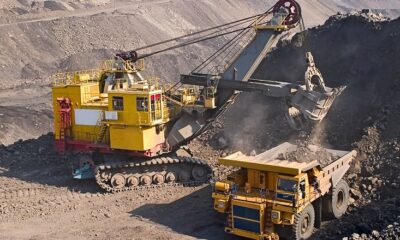

Nigeria resumes mining in Zamfara state
-
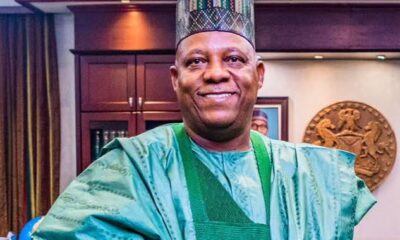

Nigeria’s future is very bright, we’ll overcome challenges, VP Shettima says
-


‘Pray for leaders to serve you diligently,’ President Tinubu tells Nigerians
-


Nigeria on the right path despite hardship, criticism— President Tinubu
Strictly Personal
Let’s merge EAC and Igad, By Nuur Mohamud Sheekh
Published
1 month agoon
November 27, 2024
In an era of political and economic uncertainty, global crises and diminishing donor contributions, Africa’s regional economic communities (RECs) must reimagine their approach to regional integration.
The East African Community (EAC) and the Intergovernmental Authority on Development (Igad), two critical RECs in East Africa and the Horn of Africa have an unprecedented opportunity to join forces, leveraging their respective strengths to drive sustainable peace and development and advance regional economic integration and promote the African Continental Free Trade Area (AfCFTA).
Already, four of the eight Igad member states are also members of the EAC and, with Ethiopia and Sudan showing interest, the new unified bloc would be formidable.
Igad’s strength lies in regional peacemaking, preventive diplomacy, security, and resilience, especially in a region plagued by protracted conflicts, climate challenges, and humanitarian crises. The EAC, on the other hand, has made remarkable strides in economic integration, exemplified by its Customs Union, Common Market, and ongoing efforts toward a monetary union. Combining these comparative advantages would create a formidable entity capable of addressing complex challenges holistically.
Imagine a REC that pairs Igad’s conflict resolution strengths with the EAC’s diplomatic standing and robust economic framework. Member states of both are also contributing troops to peacekeeping missions. Such a fusion would streamline efforts to create a peaceful and economically prosperous region, addressing the root causes of instability while simultaneously promoting trade investment and regional cooperation.
These strengths will be harnessed to deal with inter-state tensions that we are currently witnessing, including between Ethiopia and Somalia over the Somaliland MoU, strained relations between Djibouti and Eritrea, and the continually deteriorating relations between Eritrea and Ethiopia.
The global economy experienced as a result of the COVID-19 pandemic, compounded by the Ukraine war and competing global crises, has strained donor countries and reduced financial contributions to multilateral organisations and African RECs. Member states, many of which are grappling with fiscal constraints, are increasingly unable to fill this gap, failing to make timely contributions, which is in turn affecting key mandate areas of Igad and EAC, and staff morale.
A merger between Igad and EAC would alleviate this financial pressure by eliminating redundancies. Shared administrative systems, integrated programmes, and a unified leadership structure would optimise resources, enabling the new REC to achieve more with less. Staff rationalisation, while sensitive, is a necessary step to ensure that limited funds are channelled toward impactful initiatives rather than duplicative overheads.
The African Union (AU) envisions a fully integrated Africa, with RECs serving as the building blocks of the AfCFTA. A unified EAC-Igad entity would become a powerhouse for regional integration, unlocking economies of scale and harmonising policies across a wider geographical and economic landscape.
This merger would enhance the implementation of the AfCFTA by creating a larger, more cohesive market that attracts investment, fosters innovation, and increases competitiveness. By aligning trade policies, infrastructure projects, and regulatory frameworks, the new REC could serve as a model for others, accelerating continental integration.
The road to integration is not without obstacles. Political will, divergent institutional mandates, and the complexity of harmonising systems pose significant challenges. However, these hurdles are surmountable through inclusive dialogue, strong leadership, and a phased approach to integration.
Member states must prioritise the long-term benefits of unity over short-term political considerations. Civil society, the private sector, the youth, and international partners also have a critical role to play in advocating for and supporting this transformative initiative.
The time for EAC and Igad to join forces is now. By merging into a single REC, they would pool their strengths, optimise resources, and position themselves as a driving force for regional and continental integration. In doing so, they would not only secure a prosperous future for their citizens and member states but also advance the broader vision of an integrated and thriving Africa.
As the world grapples with crises, Africa must look inward, embracing the power of unity to achieve its potential. A combined Igad-EAC is the bold step forward that the continent needs.
Nuur Mohamud Sheekh, a diplomatic and geopolitical analyst based in London, is a former spokesperson of the Igad Executive Secretary. X: @NuursViews
Strictly Personal
Budgets, budgeting and budget financing, By Sheriffdeen A. Tella, Ph.D.
Published
1 month agoon
November 20, 2024
The budget season is here again. It is an institutional and desirable annual ritual. Revenue collection and spending at the federal, State and local government levels must be authorised and guided by law. That is what budget is all about. A document containing the estimates of projected revenues from identified sources and the proposed expenditure for different sectors in the appropriate level of government. The last two weeks have seen the delivery of budget drafts to various Houses of Assembly and the promise that the federal government would present its draft budget to the National Assembly.
Do people still look forward to the budget presentation and the contents therein? I am not sure. Citizens have realised that these days, governments often spend money without reference to the approved budget. A governor can just wake up and direct that a police station be built in a location. With no allocation in the budget, the station will be completed in three months. The President can direct from his bathroom that 72 trailers of maize be distributed to the 36 states as palliatives. No budget provision, and no discussion by relevant committee or group.
We still operate with the military mentality. We operated too long under the military and of the five Presidents we have in this democracy, two of them were retired military Heads of State. Between them, they spent 16 years of 25 years of democratic governance. Hopefully, we are done with them physically but not mentally. Most present governors grew up largely under military regimes with the command system. That is why some see themselves as emperor and act accordingly. Their direct staff and commissioners are “Yes” men and women. There is need for disorientation.
The importance of budget in the art of governance cannot be overemphasized. It is one of the major functions of the legislature because without the consideration and authorisation of spending of funds by this arm of government, the executive has no power to start spending money. There is what we refer to as a budget cycle or stages. The budget drafting stage within the purview of the executive arm is the first stage and, followed by the authorisation stage where the legislature discusses, evaluates and tinkers with the draft for approval before presenting it to the President for his signature.
Thereafter, the budget enters the execution phase or cycle where programmes and projects are executed by the executive arm with the legislature carrying out oversight functions. Finally, we enter the auditing phase when the federal and State Auditors verify and report on the execution of the budgets. The report would normally be submitted to the Legislature. Many Auditor Generals have fallen victim at this stage for daring to query the executives on some aspects of the execution in their reports.
A new budget should contain the objectives and achievements of the preceding budget in the introduction as the foundation for the budget. More appropriately, a current budget derives its strength from a medium-term framework which also derives its strength from a national Development Plan or a State Plan. An approved National Plan does not exist currently, although the Plan launched by the Muhammadu Buhari administration is in the cooler. President Tinubu, who is acclaimed to be the architect of the Lagos State long-term Plan seems curiously, disillusioned with a national Plan.
Some States like Oyo and Kaduna, have long-term Plans that serve as the source of their annual budgets. Economists and policymakers see development plans as instruments of salvation for developing countries. Mike Obadan, the former Director General of the moribund Nigeria Centre for Economic and Management Administration, opined that a Plan in a developing country serves as an instrument to eradicate poverty, achieve high rates of economic growth and promote economic and social development.
The Nigerian development plans were on course until the adoption of the World Bank/IMF-inspired Structural Adjustment Programme in 1986 when the country and others that adopted the programme were forced to abandon such plan for short-term stabilisation policies in the name of a rolling plan. We have been rolling in the mud since that time. One is not surprised that the Tinubu administration is not looking at the Buhari Development Plan since the government is World Bank/IMF compliant. It was in the news last week that our President is an American asset and by extension, Nigeria’s policies must be defined by America which controls the Bretton Woods institutions.
A national Plan allows the citizens to monitor quantitatively, the projects and programmes being executed or to be executed by the government through the budgeting procedure. It is part of the definitive measures of transparency and accountability which most Nigerian governments do not cherish. So, you cannot pin your government down to anything.
Budgets these days hardly contain budget performance in terms of revenue, expenditure and other achievements like several schools, hospitals, small-scale enterprises, etc, that the government got involved in successfully and partially. These are the foundation for a new budget like items brought forward in accounting documents. The new budget should state the new reforms or transformations that would be taking place. Reforms like shifting from dominance of recurrent expenditure to capital expenditure; moving from the provision of basic needs programmes to industrialisation, and from reliance on foreign loans to dependence on domestic fund mobilisation for executing the budget.
That brings us to the issue of budget deficit and borrowing. When an economy is in recession, expansionary fiscal policy is recommended. That is, the government will need to spend more than it receives to pump prime the economy. If this is taken, Nigeria has always had a deficit budget, implying that we are always in economic recession. The fact is that even when we had a surplus in our balance of payment that made it possible to pay off our debts, we still had a deficit budget. We are so used to borrowing at the national level that stopping it will look like the collapse of the Nigerian state. The States have also followed the trend. Ordinarily, since States are largely dependent on the federal government for funds, they should promote balanced budget.
The States are like a schoolboy who depends on his parents for school fees and feeding allowance but goes about borrowing from classmates. Definitely, it is the parents that will surely pay the debt. The debt forgiveness mentality plays a major role in the process. Having enjoyed debt forgiveness in the past, the federal government is always in the credit market and does not caution the State governments in participating in the market. Our Presidents don’t feel ashamed when they are begging for debt forgiveness in international forum where issues on global development are being discussed. Not less than twice I have watched the countenance of some Presidents, even from Africa, while they looked at our president with disdain when issues of debt forgiveness for African countries was raised.
In most cases, the government, both at the federal and state cannot show the product of loans, except those lent by institutions like the World Bank or African Development Bank for specific projects which are monitored by the lending institutions. In other cases, the loans are stolen and transferred abroad while we are paying the loans. In some other cases, the loans are diverted to projects other than what the proposal stated. There was a case of loans obtained based on establishing an international car park in the border of the State but diverted to finance the election of a politician in the State. The politician eventually lost the election but the citizens of the State have to be taxed to pay the loan. Somebody as “Nigeria we hail thee”.
Transformation in budgeting should commence subsequently at the State and federal level. Now that local government will enjoy some financial autonomy and therefore budgeting process, they should be legally barred from contracting foreign loans. They have no business participating in the market. They should promote balanced budget where proposed expenditures must equal the expected revenues from federal and internal sources. The State government that cannot mobilise, from records, up to 40 percent of its total budget from IGR should not be supported to contract foreign loans. The States should engage in a balanced budget. The federal government budget should shift away from huge allocations to recurrent expenditure towards capital expenditure for capital formation and within the context of a welfarist state.
Sheriffdeen A. Tella, Ph.D.
EDITOR’S PICK


Niger citizen knocks President Tchiani for neglecting critical issues at home to peddle rumours against Nigeria
A citizen of Niger Republic has slammed the country’s military leader, President Abdourahmane Tchiani, for neglecting critical issues facing the...
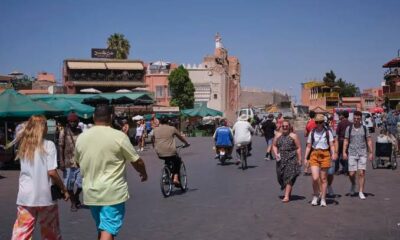

Moroccan tourist arrivals hit record-breaking 16 million
The year 2024 has seen Morocco celebrate a record-breaking 16 million tourist arrivals, surpassing the 12 million mark set in...


Safaricom Ethiopia launches 4G network in Gambella
Ethiopia’s second largest telecom provider, Safaricom Telecommunications Ethiopia P.L.C., has announced the official launching of its 4G network services in...


Dumping England for Nigeria the best decision of my life— Ademola Lookman
Current African Men’s Footballer of the Year, Ademola Lookman, has attributed his rise in the football echelon to his decision...


Zambian NGOs rate President Hichilema’s reforms as not far-reaching
Two Non-Governmental Organizations (NGOs) in Zambia, the Transparency International-Zambia (TI-Z) and the Continental Leadership Research Institute (CLRI), have rated the...
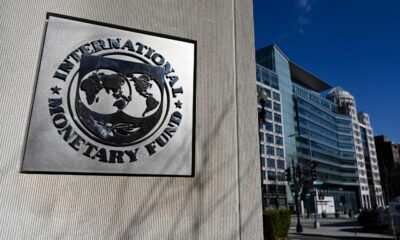

IMF, Egypt reach agreement for fourth review of Egypt’s $1.2 billion loan request
Egypt and the International Monetary Fund (IMF) have reached a staff-level agreement over the fourth review of the Extended Fund...


Libya’s eastern govt accepts petrol subsidy elimination
In a recent statement, the eastern government of Libya claimed it had reached a consensus on a plan to eliminate...


World Bank suspends loan fees for impoverished countries
To lower borrowing costs for vulnerable nations, the World Bank has announced the elimination of several loan fees. The action...
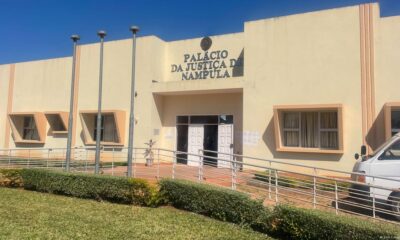

Mozambique’s top court affirms governing party’s victory in recent election
The highest court in Mozambique affirmed Monday that the incumbent Frelimo party won the October election, sparking widespread demonstrations from...


Nigeria resumes mining in Zamfara state
According to the mining minister, Nigeria has removed a five-year restriction on mining exploration in the northwest state of Zamfara,...
Trending
-

 Politics2 days ago
Politics2 days agoMozambique’s top court affirms governing party’s victory in recent election
-

 VenturesNow2 days ago
VenturesNow2 days agoLibya’s eastern govt accepts petrol subsidy elimination
-

 VenturesNow2 days ago
VenturesNow2 days agoNigeria resumes mining in Zamfara state
-

 Metro2 days ago
Metro2 days agoZambian NGOs rate President Hichilema’s reforms as not far-reaching


